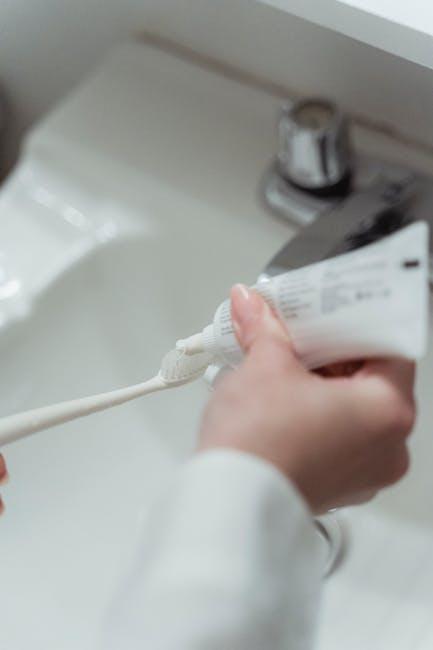
Debate Intensifies as Alabama Water Systems Consider Ending Water Fluoridation – WBMA
Across Alabama, communities are grappling with a heated debate: should water fluoridation be discontinued in public water systems? As WBMA reports, the decision to potentially end adding fluoride—a mineral long known for its cavity-preventing benefits—is stirring strong opinions from both health advocates and critics. This article dives into the unfolding debate, examining benefits, concerns, and the potential impact on Alabama residents.
Understanding Water Fluoridation
Water fluoridation is the controlled addition of fluoride to a public water supply to reduce tooth decay. It has been practiced in the United States since the mid-20th century, credited with dramatically improving dental health across populations. Alabama has used this method in many municipal water systems for decades, promoting it as a simple and cost-effective public health measure.
What is Fluoride?
Fluoride is a naturally occurring mineral found in soil, water, and various foods. When added to drinking water at recommended levels (typically around 0.7 mg/L), it strengthens tooth enamel, making teeth more resistant to decay caused by acid and bacteria.
The Current Debate in Alabama
Several Alabama water systems are now considering ending water fluoridation, prompting debates fueled by new research, public concerns, and evolving community values. Here’s a look at the main arguments from both sides.
Arguments Supporting the End of Water Fluoridation
- Health Concerns: Some community members worry about potential health risks, including dental fluorosis, possible links to other health issues, and concerns over fluoride ingestion from multiple sources.
- Individual Choice: Critics argue that fluoridation removes individual autonomy over one’s health decisions by medicating an entire population through water.
- Environmental Impact: Some claim fluoride accumulation may affect aquatic life and water ecosystems, though evidence remains inconclusive.
Arguments for Continuing Water Fluoridation
- Proven Dental Health Benefits: Studies confirm fluoridated water significantly decreases tooth decay, particularly for children and low-income populations with limited access to dental care.
- Cost Effectiveness: Fluoridation reduces dental treatment costs for individuals and healthcare systems, preventing cavities before they start.
- Endorsed by Health Organizations: The American Dental Association (ADA), CDC, and World Health Organization (WHO) all support community water fluoridation as safe and effective.
Health Impact Statistics on Water Fluoridation
| Statistic | With Fluoridation | Without Fluoridation |
|---|---|---|
| Reduction in Tooth Decay (Children) | 25-35% | Baseline |
| Annual Dental Cost per Person | $50-$70 less | Higher |
| Reported Dental Fluorosis (Mild) | ~10% | Minimal risk |
Case Studies: Lessons from Other Communities
Several U.S. cities have made headlines over water fluoridation decisions. Below are two illustrative examples relevant to Alabama’s consideration:
Portland, Oregon
After years of fluoridation, Portland voted to end it in 2011, sparking controversy. Studies showed an increase in dental cavities after removal, leading to renewed discussions about reinstating fluoride in the water.
Springfield, Illinois
Springfield continues fluoridating its water system successfully, reporting lower dental decay rates compared to similar-sized cities without fluoridation programs. Public health officials credit fluoridation as a key factor in improving oral health.
Practical Tips for Residents if Fluoridation Ends
Should Alabama water systems discontinue fluoridation, residents can take proactive steps to maintain dental health:
- Use Fluoride Toothpaste: Brushing twice daily with fluoride toothpaste remains crucial.
- Consider Fluoride Supplements: Consult your dentist about fluoride varnishes or supplements, especially for children.
- Maintain Regular Dental Checkups: Early detection and treatment help prevent extensive decay.
- Limit Sugary Foods and Drinks: Reducing sugar intake can reduce cavity risk irrespective of fluoride levels.
- Stay Informed: Follow local water quality updates and public health announcements.
Community Voices: Firsthand Perspectives
Local residents express mixed emotions about the potential changes:
“Fluoride helped me grow up with strong teeth despite limited dental visits. I worry this change might reverse those gains.”
“I support ending fluoridation. People should control what goes into their bodies, not the government.”
Conclusion: Navigating Alabama’s Fluoridation Future
As Alabama water systems weigh the future of water fluoridation, the debate highlights complex issues of public health, personal freedom, and scientific evidence. While fluoridation has long been a critical defense against tooth decay, evolving community opinions and health concerns prompt serious reassessment. Whatever the outcome, staying informed and understanding both sides of the discussion will empower Alabama residents to make the best decisions for their families and communities.
Stay tuned with WBMA and local public health authorities for ongoing updates on Alabama’s fluoridation policies and community health initiatives.


